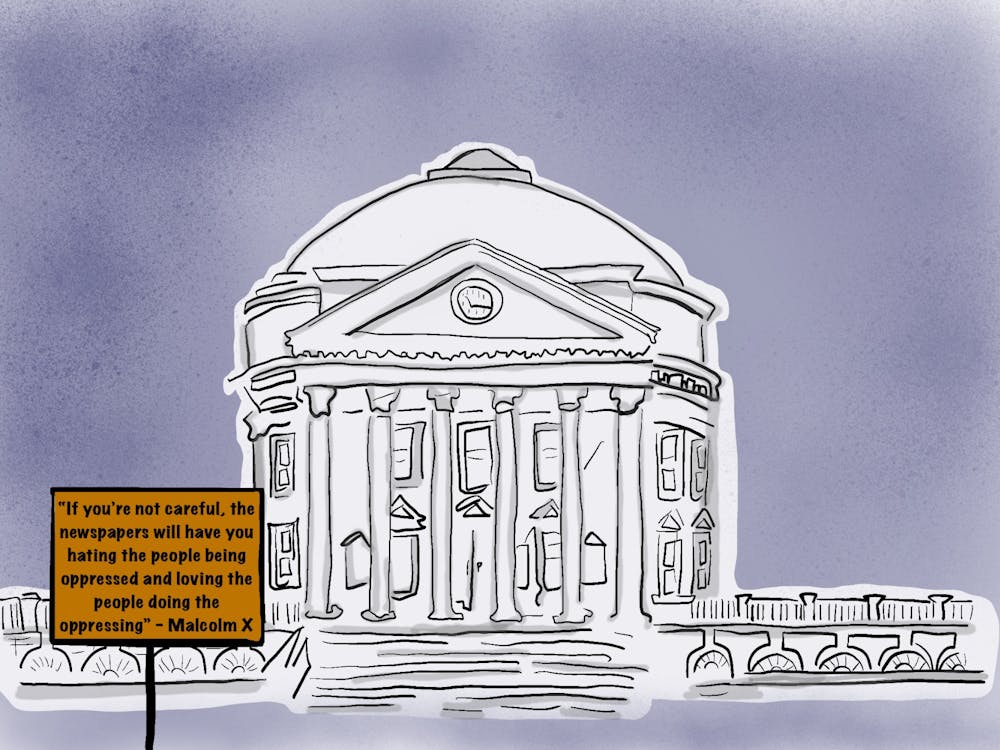In a letter to Lafayette, Thomas Jefferson wrote regarding freedom of the press: “The force of public opinion cannot be resisted when permitted freely to be expressed. The agitation it produces must be submitted to. It is necessary to keep the waters pure." There has been a recent debate regarding the comment section of websites of news sources and whether they have become obsolete or ineffective. Some prominent news sources, like Reuters and Popular Science, have phased out comment sections entirely. However, the inclusion of a comment section is imperative to fulfill the goal of a newspaper: facilitating discussion.
A newspaper exists not to preach from a viewpoint that all of its readers hold, but to educate its readership on what is happening in the community and around the world. It should be expected that readers form their own opinions regarding what is happening, and that can only take place if they are allowed to have a discussion with others. Without dialogue a newspaper becomes an echo-chamber. As Jefferson notes, public discussion comes with downsides and “agitation.” However, in this instance the downsides are minimal and worth bearing.
The Cavalier Daily’s public editor claims the anonymous nature of the comment section disproportionately affects public discourse. This stance, while reasonable, does not tell the full story. For example, The New York Times article cited to support this argument in the public editor column concludes that “Despite flaws, comments are good for public discourse.” The public editor argues that people could be wrongly influenced by incorrect information in the comment section. I believe people can and should be trusted to research for themselves on whether information is accurate or not. Furthermore, it is clear the comments are personal opinions by their very nature. This objection is insufficient to justify the removal of the comment section.
The public editor also makes the point that there are other places to discuss online, like Facebook and Twitter. Does the existence of one means of communication render all other means superfluous? Of course not. The more places for readers to engage with the text and the opinions of others, the better.
The argument that people could be influenced by misleading comments is a current hot-button issue, related to the ‘fake news’ craze that is dominating the media. Newspapers are taking extreme care to appear as reputable as possible, and judicious readers are filtering their news more than ever. All of these are positive trends. However, a problem arises when people get savior-complexes regarding their self-designated responsibility to decide which news is ‘fake’ and which is ‘real.’ The elimination of comment sections is a symptom of the disease of well-intentioned citizens deciding what news should and should not be given a voice.
That is not to say that all news is worthy of being published on the front page of The New York Times, or that everything one reads should be taken as fact. My point is that instead of calling for greater filtering of newspapers and their websites, we should be calling for a greater level of critical thinking by the public — an elevation of the public discourse. The problems with comment sections are well documented, but eliminating them outright would stunt critical analysis and public discussion.
In the end, the arguments against online comment sections ignore the purpose of a newspaper and raise more questions than they do answers. The public editor article concludes with some suggestions about how the comment section could be potentially reformed and a general exhortation to greater transparency. Nothing is concluded, and the reader is left with even more uncertainty than before. But it doesn’t really matter, for from Mr. Jefferson we know that such “agitation” is to be expected from a free press. Because of the freedom to read and respond, the opposing view can be heard.
Connor Fitzpatrick is a viewpoint writer for the Opinion section. He may be reached at opinion@cavalierdaily.com.





